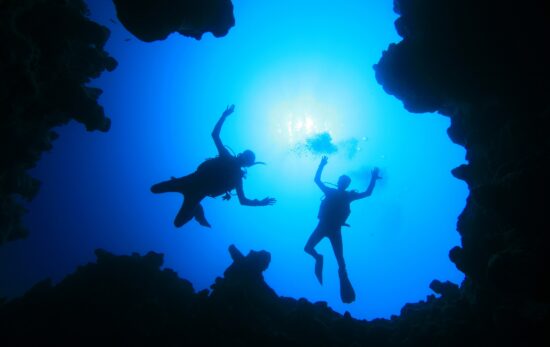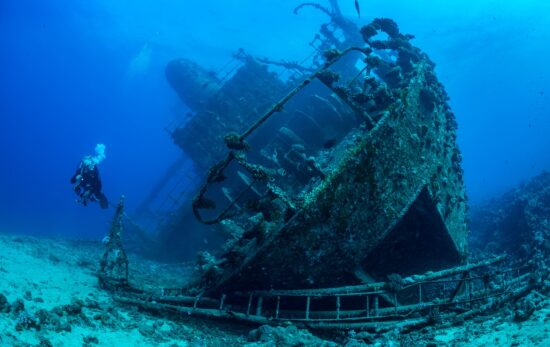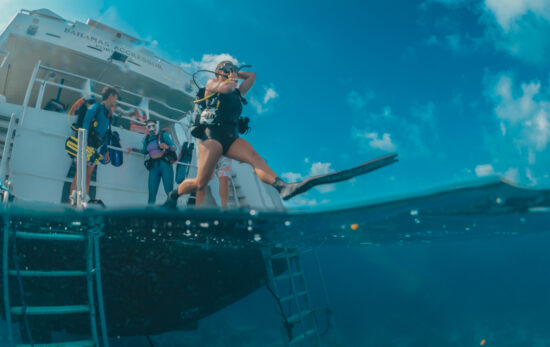It’s safe to say there is an immense variety of PADI Courses available today! From beginner courses and specialties right through to professional levels that allow you to revel in diving across the globe. However, you may be wondering about the differences between some of the more similar courses. For example, what is the Deep Diver vs. Advanced Open Water Diver course? What are the differences and similarities?
Once you’ve completed the Open Water Diver course, you’ll definitely want to continue your diving education. The next steps you can take include the PADI Adventure Diver or Advanced Open Water Diver course. Once you are certified as an Adventure Diver or Advanced Open Water Diver and you meet the minimum age requirement, you can enroll in the PADI Deep Diver Specialty course. Keep reading to find out more.
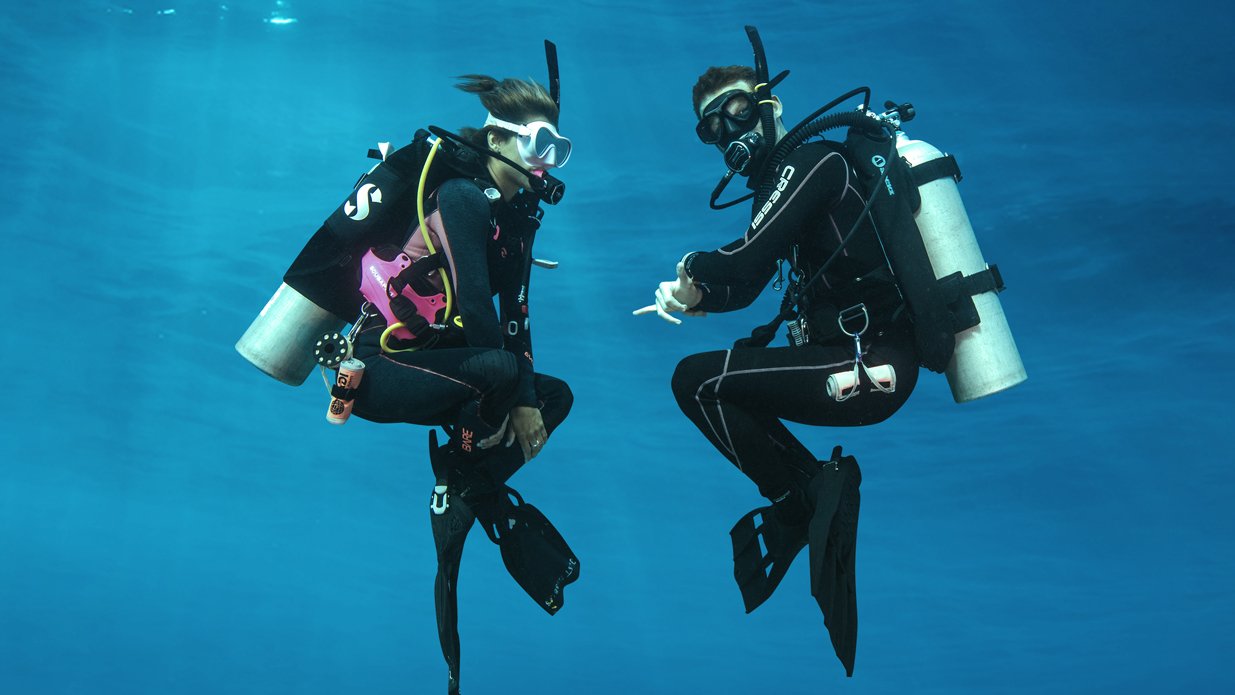
PADI Advanced Open Water Diver
Improve all areas of your diving skills down to 30 meters (100 feet).
If you loved your Open Water Diver course and are eager to learn more or want to dive deeper, consider the PADI Advanced Open Water Diver course. This higher certification level allows you to dive down to 30 meters/100 feet! The two to three day (depending on how many dives you do a day) course requires five different Adventure Dives, including navigation, a deep dive, and three additional specialities you can select with your instructor. These could include fish identification, night diving, drift diving, peak performance buoyancy, altitude diving, drysuit diving, and more.
To summarize the PADI Advanced Open Water Diver course:
- 5 Adventure Dives, including navigation and deep diving
- Certified to 30 meters/100 feet
- Ideal for those looking to improve in ALL areas of knowledge and diving skills
- Choose optional dives that include Fish ID, Drift Diver, Night Diver, Boat Diver, Digital Underwater Photography, Peak Performance Buoyancy, Enriched Air Nitrox, Search and Recovery, and many more. These adventure dives also count as the first dive to the corresponding specialty.
What Prerequisites Are Needed?
- PADI Open Water Diver course or a qualifying certification from another organization
Minimum Age: 12 years old (or 10 for the Junior Advanced Open Water Diver course)
eLearning Available: Yes
You might also like:
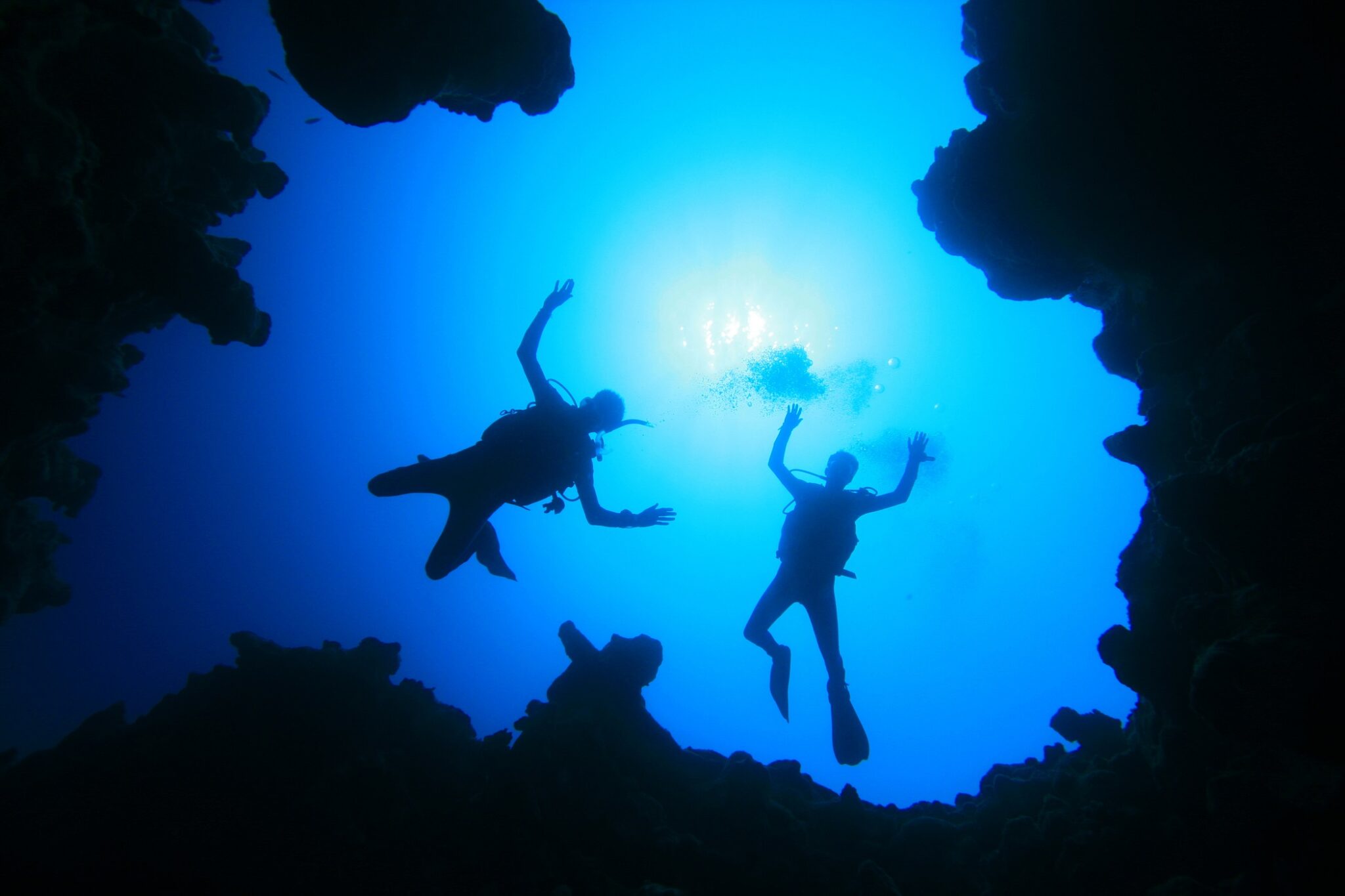
PADI Deep Diver
Venture into deeper depths of the oceans with confidence.
The PADI Deep Diver is a speciality course ideal for those looking to venture into the depths beyond the 18-meter/60-foot limit of the Open Water Diver qualification, as well as beyond the 30-meter/100-foot limit of the Advanced Open Water Diver course. Above all, this course is for depth lovers. With this speciality, your instructor will help you develop safe diving practices over two to three days to comfortably explore life down to 40 meters/130 feet below the surface!
To summarize the PADI Deep Diver course:
- Classed as a speciality course
- Dives focus on deep diving skills
- Certified to 40 meters/130 feet
- Learn how to plan deep dives
- Learn how to manage your gas supply
- Lastly, know how to identify and manage narcosis
What Are the Advantages of Deep Diving?
Some marine life species are more commonly seen at deeper depths, so for those who are looking for larger marine life, which might include mola mola, some shark species, tuna, barracuda and schooling fish, the Deep Diver Specialty is a perfect choice. If you prefer hunting for critters at depth, look out for pygmy seahorses, mantis shrimps, and an array of crustaceans.
What Prerequisites Are Needed?
- PADI Open Water Diver certification or equivalent
- PADI Adventure Diver (or equivalent)
Minimum Age: 15 years old
eLearning Available: Yes
You might also like:
- Take the Plunge with the PADI Deep Diver Course
- Going Deeper — 5 Reasons You Need Proper Training Before Diving Deep
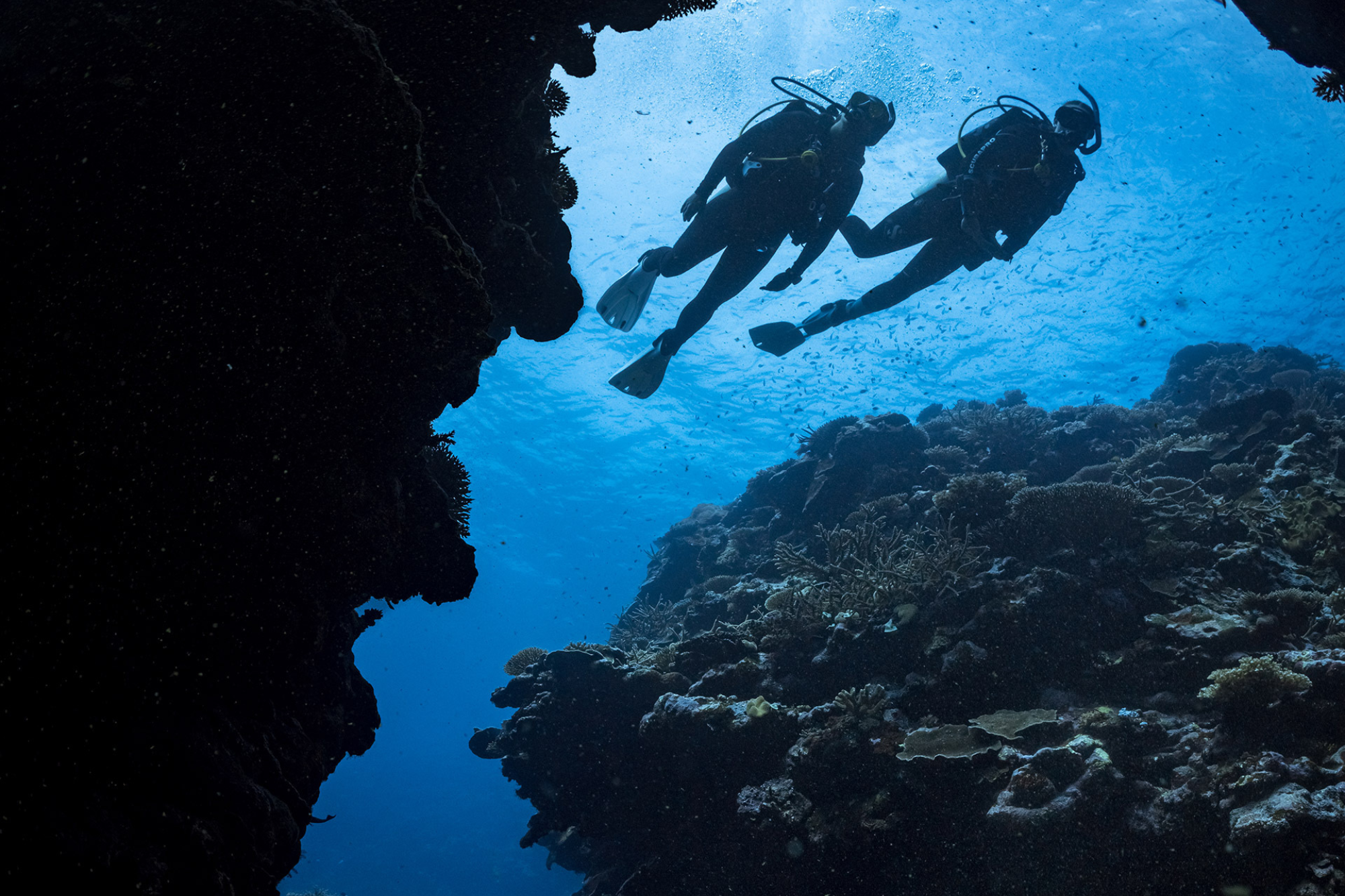
The PADI Deep Diver Specialty and Master Scuba Diver™
Take the PADI Deep Diver Specialty and take your first step toward becoming a PADI Master Scuba Diver™. The PADI Master Scuba Diver™ certification is known as the black belt of recreational diving. To gain this prestigious rating, you’ll need to be a PADI Rescue Diver with five specialties – the Deep Diver Specialty certification could be your first.
Note that the Adventure Dives you take during your Advanced Open Water Diver course also count as the first dives for your specialties – Bonus!
Other Specialties include:
- Drift Diver
- Night Diver
- Fish Identification
- Search and Recovery Diver
- Underwater Navigator
- Underwater Digital Photographer
- Boat Diver
- Enriched Air (Nitrox) Diver
- Dive Against Debris Diver

Get Started Now with eLearning!
Hopefully now you understand the Deep Diver vs. Advanced Open Water Diver course distinctions, ready to take on whichever suits you!
Luckily, you don’t have to wait to start your new PADI course. You can begin right now from the comfort of your phone, laptop or tablet at home or on the go! PADI eLearning provides the opportunity to get stuck into dive knowledge from quite literally anywhere. Whether that’s on an international flight to the Galapagos, in a hammock overlooking the Red Sea, or at home on the sofa dreaming of your next getaway!


